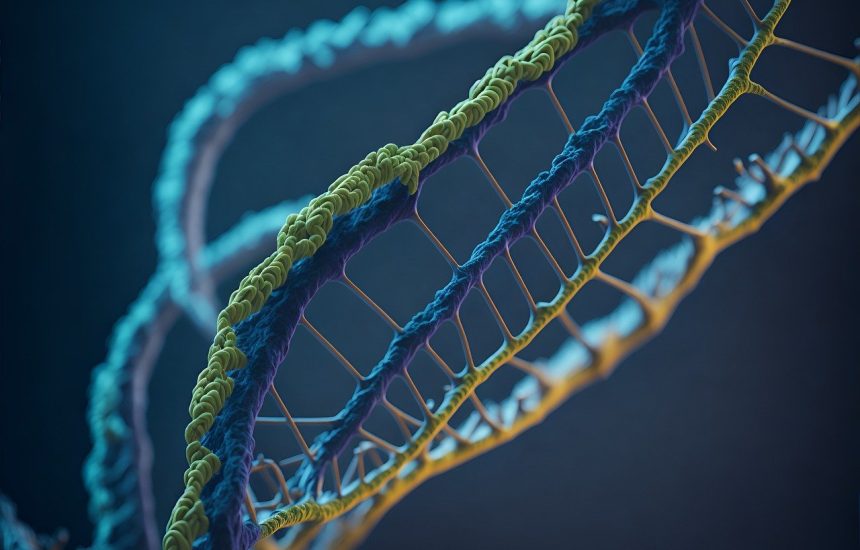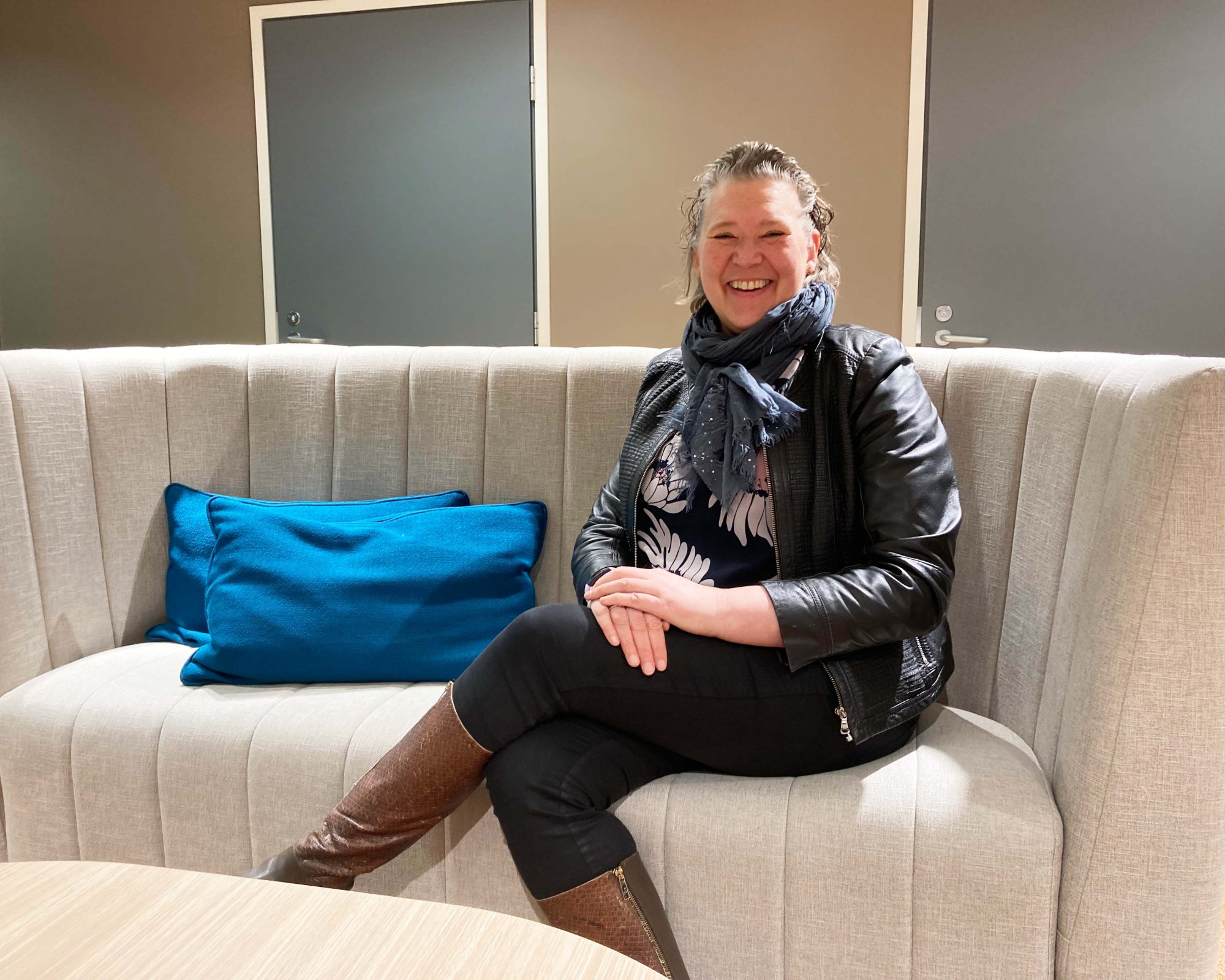Gene faults and lifestyle can increase the risk of colorectal cancer
26.4.2024 Categories: Articles
Each year, about 3,800 people are diagnosed with colorectal cancer in Finland. About 5% of diagnosed cancers are related to a high-risk gene fault that is passed down from one generation to the next.
The most well-known gene fault increasing the risk of colorectal cancer is Lynch syndrome, which is found in around 400 Finnish families. Another common gene fault is called familial adenomatous polyposis, or FAP. It can cause polyps in the intestine, often at a young age.
Hereditary colorectal cancer may be suspected if:
- At least three close relatives have had colorectal cancer.
- At least one of the close relatives was diagnosed when under the age of 50.
In addition to colorectal cancer, close relatives have also been diagnosed with cervical, urinary tract or kidney cancer.
A faulty gene increasing the risk of cancer is detected through laboratory diagnostics
A faulty gene in a close relative does not automatically mean cancer. If a parent is diagnosed with cancer caused by a gene fault, their offspring has approximately a 50% chance of inheriting the faulty gene. About 50–80% of carriers of faulty genes can develop cancer if the issue is not addressed in time.
It is possible to assess the risk of developing colorectal cancer caused by a gene fault. Faulty genes are diagnosed based on a laboratory sample taken from an intestinal tumor. If a person is diagnosed with cancer caused by a gene fault and the faulty gene is localised in the chromosome arrangement, the existence of the faulty gene in other family members can then be determined with blood samples.
If a faulty gene increasing the risk of colorectal cancer is found in your family, the safest way to prevent the development of cancer is to undergo a regular endoscopy. Endoscopies of patients with a gene fault usually start at about 20 years of age and they are performed every 2–3 years. Endoscopy helps to find precursors of a malignant tumor, also called benign polyps, which, over time, could develop into malignant cancerous tumors. These polyps can usually also be removed during the endoscopy.
There is not always a single, identifiable cause for cancer – lifestyle can have an impact
A close relative’s cancer diagnosis does not automatically mean that the family carries a gene fault increasing the risk of cancer. There are many factors and combined effects of factors that can cause cancer. In addition to faulty genes, the risk is affected by less hereditary characteristics and, in particular, lifestyle.
Sometimes, people receive a surprising cancer diagnosis even if they live a healthy life and there are no predisposing factors in their family. In recent decades, cancer diagnoses have seen a significant increase, and the number of diagnoses in Finland each year has increased for a very long time. If you are diagnosed, it is best to try to accept that there is not always an explanation for cancer instead of racking your brains over why it happened.
Exercise and other physical activities can reduce the risk of colorectal cancer. A diet rich in fibre, especially whole grains, and sufficient calcium intake can also reduce the risk of cancer.
In addition to hereditary factors, the risk of colorectal cancer is influenced by:
- obesity, especially abdominal obesity
- low exercise
- high alcohol consumption (two units per day or more)
- red meat and processed meat products
- smoking
- other diseases such as inflammatory bowel disease (IBD) and Crohn’s disease.
Early assessment of susceptibility to cancer pays off
A close relative’s cancer diagnosis can cause stress and also concern for your own health. We recommend discussing these thoughts with a specialist and having your health assessed.
Most colorectal cancers develop from a benign adenomatous polyp. This means that, in its initial stages, colorectal cancer is a benign polyp in the intestinal mucous membrane before developing into cancer. However, most benign polyps do not become cancerous. It is impossible to differentiate between different types of polyps in an endoscopy, which is why any changes found during the examination are usually removed. Early removal of benign changes can prevent the development of colorectal cancer.
Early assessment of the risk of colorectal cancer can provide peace of mind and comfort. Even if you are nervous or scared about the doctor finding something, preventing cancer with endoscopy is always easier than cancer treatment.
FIT test detects the risk of colorectal cancer in asymptomatic patients
Intestinal tumor screening became statutory in Finland at the beginning of 2022. Your municipality of residence is responsible for organising tumor screenings. Currently, colorectal cancer screenings are targeted at municipal residents aged 60–70. In the future, the target age group is planned to be expanded. Anyone, regardless of age, family situation or lifestyle, can seek colorectal cancer screening with a private provider. The specialists at Docrates recommend a FIT test designed to detect the risk of colorectal cancer every two years for people over the age of 50. The FIT test at Docrates is the same as the one used in screenings. Not all tests examining blood in stool are the same, immunological types of tests.
If you live in Finland, You can easily order a FIT test for your home. If blood is found in the stool sample, our nurse will contact you and arrange a follow-up examination, in other words, a colonoscopy , as soon as possible.
The FIT test is primarily intended for asymptomatic people. If you have significant gastrointestinal symptoms, such as changes in bowel function, constipation or diarrhoea as a new symptom, visible blood in stool difficulty defecating, we recommend contacting your doctor or one of the doctors at Docrates through the appointment booking system of Docrates Cancer Center.
Want to book an appointment?
Docrates Cancer Center is a Finnish hospital specializing in the diagnosis, treatment and monitoring of cancer in Helsinki. We offer the opportunity to get to the top cancer professionals quickly without a referral, which also means starting treatments without delay. Please contact us, we’ll be happy to help!












